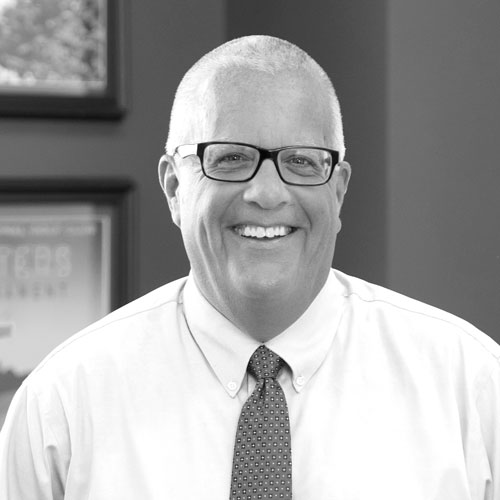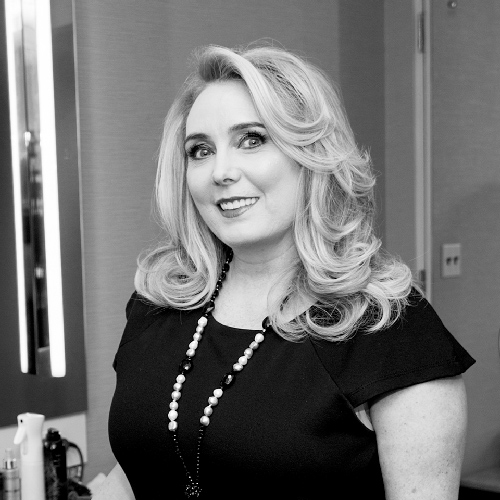To say that Barbara McCann, chief clinical officer for home care and hospice franchisor Interim HealthCare Inc., began her healthcare journey early is putting it mildly. As a child, her mother and grandmother both had cancer. Helping to care for them and her positive interactions with doctors, who still made home visits at that time, made her realize she wanted to have a career helping sick people. Her fascination was so profound that she spent hours setting up play hospitals as a child.
Responding to patients’ suffering with compassion and a strong desire to help is a quality that has marked her entire career. The ability to envision and design patient care that she demonstrated in playing hospital has been equally characteristic of her work. In an industry where lives are often in peril, McCann is an idealist and a visionary.
She entered college at the University of California at Berkeley in the 1970s on a nursing scholarship but switched to social work after attending a lecture on a psychosocial approach to caring for patients—which was novel at the time—that she describes as life-changing.
“What the professor said was that nobody experiences disease in isolation,” she says. “You are part of a family and a community. You have a job. And likely your susceptibility to illness and your ability to recover is impacted by social isolation. It depends on how your community and your family responds. After that lecture, I went into medical social work and never looked back.”
What she loved about the work was that social workers played a key role in building a bridge between a doctor’s diagnosis and the choices that the patient could make.
“It’s wonderful that looking at how the whole person is doing, mentally and physically, is now expected practice in home-based care.”
“A doctor comes in and says you have cancer or it has advanced,” she explains. “The social worker, as part of a team, can complete that message working with the patient and family members by saying, ‘This is what that means for you and your family. You can do this, and you can’t do that.’ These are elements of communication that we still struggle with today.”
As she began her career, hospice care was in its early stages. With funding from multiple sources, including the W.K. Kellogg Foundation and the Joint Commission, she worked with hospice peers to develop the first standards for the delivery of this end-stage care.
After working as the executive director of accreditation and plan performance at the Blue Cross and Blue Shield Association, she joined Interim HealthCare Inc. in 1998. In her role as chief clinical officer, she worked with lead clinicians from across Interim’s national network to create guidelines for the delivery of care at home, including how shifts are managed for the care of children with special needs in their home, as well as guidelines for the home care of those chronically ill with heart failure, chronic obstructive pulmonary disease, and other illnesses.
“The advantage of being a social worker when creating guidelines for care at home is looking at patient care from the perspective of what I call ‘the kitchen table,’ or the reality of managing disease and any related functional problems within the patient’s family unit and where they live,” McCann says.
“One factor that we observed and then found in clinical studies was the impact of depression and anxiety on patient recovery and cost of care,” McCann says. When patients experience an exacerbation of their illness or face managing multiple chronic illnesses, it can include the onset of depression, she says. Screening for depression is now a standard in the delivery of home healthcare, as it is also in many primary care physician practices.
“It’s wonderful that looking at how the whole person is doing, mentally and physically, is now expected practice in home-based care,” she says.
When the Affordable Care Act (ACA) was passed, McCann read the entire two-thousand-page document to distill the how the legislation could impact healthcare providers. She came away with the sense that it could be a catalyst for major improvements in healthcare delivery. In 2010, she assumed the role of chief clinical officer at Interim to facilitate the translation of the emerging reforms for the those providing care each day.
“The ACA provided a challenge to the clinical community,” she says. “The law asks hospitals, home care, and other providers to think clearly before we discharge a patient about whether a patient and family can handle the situation or if a patient needs some type of continuing care. It was no longer ‘discharge and done,’ but a conversation about what lasting effect our care had on that person’s ability to manage their health. As clinicians, it forces us to step back and work together across care settings and ask how are we going to make this better.”
After thirty-five years in the industry and seeing its problems up close, McCann’s idealism has not only remained intact, it has increased. She says that the development of standards and the improvement of communication between providers and patients points toward a hopeful future.
“As someone enrolling in Medicare myself—and there are ten thousand of us turning sixty-five every day—there have to be standards of quality for people who deliver care,” she says. “We should pay for care that produces positive outcomes, and primary care should be part of a life plan. The nation can’t survive without this becoming a permanent part of healthcare. Maybe I’m an idealist, but I think that it will.”
Editor’s note: At the time of publication, Barbara McCann was no longer with Interim HealthCare.


